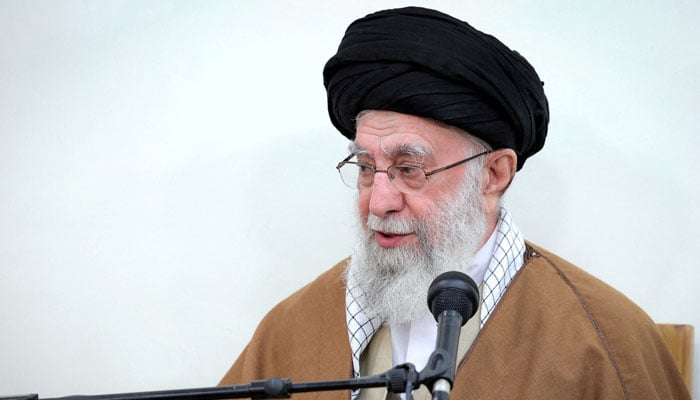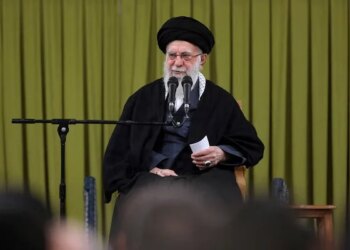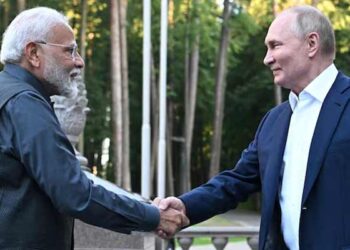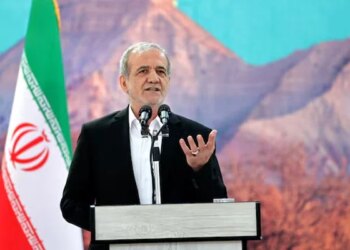Select Language:
MOSCOW: Iranian Supreme Leader Ali Khamenei dispatched his foreign minister to Moscow on Thursday, delivering a letter to President Vladimir Putin regarding updates on nuclear discussions with the United States, which has issued threats of military action against Iran.
U.S. President Donald Trump has consistently warned Iran of potential bombardments and indicated that he would impose tariffs on countries importing Iranian oil unless Tehran reaches an agreement with Washington concerning its contentious nuclear program. The U.S. has also deployed additional military aircraft to the region.
Last weekend, discussions took place in Oman between the Trump administration and Iran, both sides described the meeting as positive and constructive. Ahead of a planned second round of negotiations in Rome this weekend, Foreign Minister Abbas Araqchi affirmed on Wednesday that Iran’s right to uranium enrichment remains non-negotiable.
As a long-time ally of Tehran, Russia plays a pivotal role in Iran’s nuclear dialogues with Western nations as a permanent member of the U.N. Security Council and a participant in an earlier nuclear agreement that Trump abandoned in 2018.
Araqi stated, “In terms of the nuclear matter, we have always maintained close consultations with our partners China and Russia. Currently, it is an opportune time to engage with Russian officials.”
Letter for Putin
Araqi mentioned that he was delivering a letter to Putin that addressed both regional and bilateral matters. Following this, Putin welcomed Araqi at the Kremlin.
Western nations argue that Iran is enriching uranium to levels far exceeding what is necessary for a civilian nuclear energy initiative, drawing closer to the threshold suitable for atomic weapons. Iran refutes this claim, asserting its intent is solely for a civilian nuclear agenda.
Moscow has procured arms from Iran to support its military efforts in Ukraine and finalized a strategic partnership agreement with Tehran for twenty years earlier this year, although this deal did not include a mutual defense stipulation. The two nations have cooperated militarily in Syria for years until the downfall of their ally, Bashar al-Assad, in December.
Putin has maintained a cordial relationship with Khamenei as both Russia and Iran find themselves positioned as adversaries of the West; however, Moscow seeks to prevent the onset of a nuclear arms race in the Middle East.
Russia has articulated that any military action against Iran would be deemed illegal and unacceptable. On Tuesday, the Kremlin refrained from commenting on whether Russia is prepared to oversee Iran’s enriched uranium stockpiles as part of a future nuclear agreement between Iran and the United States.






